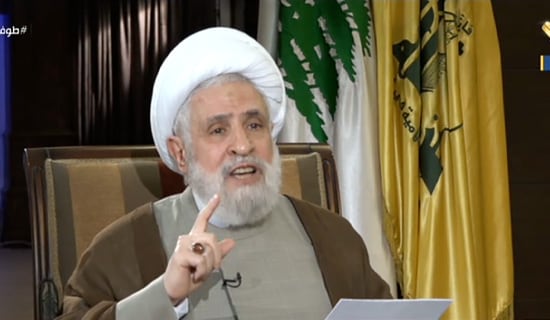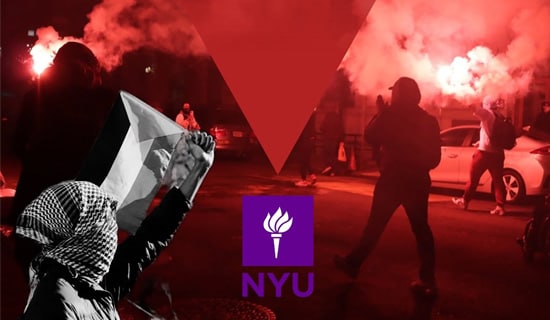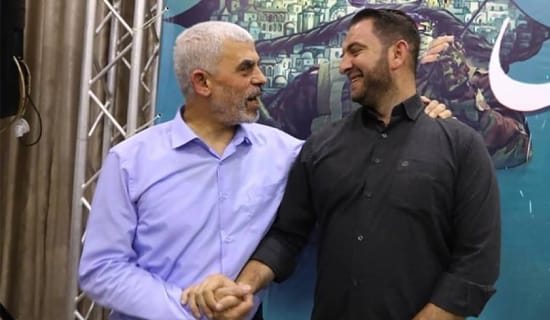Introduction
On November 8, 2009, in its 11th session on the subject, the Iraqi parliament approved a revision of the Elections Law. This revision, which would have permitted the parliamentary elections to be scheduled for January 2010, was not to be the last. Critics might despair at the length and the intensity of the haggling over this law, which went on for weeks both in public and behind closed doors until a compromise was reached and voted upon. However, this haggling can also be seen in a positive light. By seeking to reach a compromise on critical issues, the Iraqi parliamentarians have reinforced one of the key foundations of democracy – the art of compromise through bargaining. As the British weekly The Economist aptly stated in the headline of its article on this debate: "Amid the bickering and chicanery, people are engaging in democracy."[1]
Under the Iraqi constitution, the next parliamentary elections should be held by the end of January 2010. However, the Elections Law which governed the 2005 elections needed to be revised and updated, and two issues in particular proved to be difficult and controversial. One had to do with the modality of voting, with the choice between an "open" vs. a "closed" system. The second, which proved to be the more complex and contentious of the two, had to do with the status of the oil-rich city of Kirkuk. On November 8, the Iraqi parliament passed a revised version of the law,[2] but vice-president Tareq Al-Hashemi vetoed the revised law, and the deal-making started anew.
This report will review and analyze the two issues under debate, and the subsequent veto that threatened to throw Iraq into a constitutional vacuum and political turmoil.
"Open" vs." Closed" Voting System
Under the old elections law, which governed the elections of January 2005, citizens voted for a "closed list." That is, they voted for the list in its entirety, with no possibility of voting for individuals within a particular slate. The alternative is the "open list" system, meant to increase competitiveness, which offers the voter three options: (i) to vote for an entire list of candidates; (ii) to vote for a single individual on a list; and (iii) to vote for a single independent candidate. Concerned that some of their leaders may be selected out by this process, the large political coalitions insisted on keeping the closed list system.
The open list method was first employed by Prime Minister Nouri Al-Maliki in the January 2009 provincial elections, and the results for his umbrella organization Dawlat Al-Qanun (State of Law) fully justified his adoption of this voting modality. However, it was precisely because of Al-Maliki's success that his two main former coalition partners – the Supreme Islamic Council and the Sadrist Movement – rejected this modality. A leader in the Sadrist movement stated that the National Iraqi Alliance (an alliance made up primarily of Shi'ite political parties) would "push in favor of the closed list [system] in order to deny Al-Maliki a winning card."[3] Presumably, personal animosity led these forces to assume that anything beneficial to Al-Maliki would bad for his rivals. A more substantial reason for rejecting the open list system was a concern that, given a choice, the voters may refrain from voting for party leaders who would be seen as too close to the Iranian regime.
The breakthrough in favor of the open list system came when the marja'iyah, Iraq's highest Shi'ite religious authority, endorsed it. Hamid Al-Khaffaf, spokesman of Iraq's top Shi'ite cleric Grand Ayatollah 'Ali Al-Sistani, warned that the closed list system would have "a powerful adverse effect on the desire of citizens to participate in the democratic political process." Al-Sistani himself was quoted as saying that unless open lists were adopted, he would not support the elections.[4] With Al-Sistani endorsing it, the support for the open list system grew quickly and the opposition to it collapsed.
The Central Issue of Kirkuk
Due to its oil wealth and its mixed population, Kirkuk has been the major impediment to reaching an agreement on the Elections Law. The Kurds maintain that since the city is the heart of Kurdistan and since they wish to make it their capital, Kirkuk should be incorporated into the territory under the control of the Kurdistan Regional Government (KRG), which currently comprises the three provinces of Dahouk, Sulaymania, and Erbil (the present seat of the KRG).
Laws Passed with Regards to Kirkuk Have Not Been Implemented
The population of Kirkuk, estimated at one million, comprises Kurds, Arabs, Turkmen, and a small minority of Christians. Article 58 of the 2003 Transitional Administration Law made four recommendations regarding this city:
- Residents who lost their homes and property during the Saddam Hussein era should receive them back;
- Citizens who were expelled from their homes to other regions should be compensated (primarily Kurds who were expelled to non-Kurdish regions as part of Saddam's Al-Anfal campaign for Arabizing Kirkuk);
- Those who lost their jobs by being forced to emigrate should be compensated;
- Individuals should be allowed to determine their own national identity and ethnic affiliation. (During the Saddam era, Kurds were forced to declare themselves Arabs for the purpose of a population census, thereby creating an artificial Arab majority in Kirkuk).
Article 140 of the post-invasion Iraqi constitution reinforced these decisions. It called to complete the implementation of Article 58, and also called to conduct a census in Kirkuk and in other disputed territories by December 31, 2007, in order "to determine the will of the citizens." However, under pressure from both the Iraqi nationalists, who bear a grudge against the Kurds, and from the Turkmen population of Kirkuk, which is backed by Turkey, [5] the Iraqi government has done practically nothing to implement Article 140. In particular, it has failed to conduct a census in order to determine the exact size and composition of the Kirkuk population. Some Turkmen argue that Kirkuk is a Turkmen city, with the Kurds and Arabs being a minority in it.[6] This argument is obviously far-fetched and meant to undermine the Kurdish claims to Kirkuk.
Without a census, it is difficult to determine who is eligible to vote in Kirkuk and how many parliamentary seats the city should be allocated. Most of Iraq's political parties prefer that the right to vote in the general elections be restricted to those whose names appear on the voter register prepared in 2004 for the 2005 elections. In contrast, the Kurds argue that this register, originally prepared during the Saddam regime,[7] excludes many families who were deported by Saddam during the 1980s and have now returned to their homes in Kirkuk. Therefore, they argue that the vote should be based on the register from 2009, a position supported by the United Nations Mission to Iraq (UNAMI).[8] In any case, the 2005 voter register has disappeared for unknown reasons and only the voter register from 2009 is now available.
The Kurds reject any attempt to treat Kirkuk as "a special case," e.g., by holding the elections in the city at a later date or by allocating it a certain number of seats, divided between the Kurds, the Arabs and the Turkmen, according to a pre-determined formula. In the eyes of the Kurds, this reflects a political plan to restore the system of sectarian quota, which is at odds with the law and the constitution.[9]
Deadlock in Parliament – The Elections Law Is Referred to the Political Council for National Security
With the parliament deadlocked, Parliament Speaker Ayad Al-Samara'i referred the issue of the Elections Law to the Supreme Council for National Security Policy, a high-level consultative body comprising the Iraqi President, his two vice presidents, the Prime Minister, the Parliament Speaker, and the heads of the key parties in parliament. In justifying this move, Samara'i said that the Kirkuk issue was "more political than legislative,"[10] reflecting his frustration over the failure of the parliament to act rapidly and get the elections underway.
The threat to veto the Elections Law was first made by President Talabani, who was pressured by KRG President Masoud Barazani against making concessions on Kirkuk. Talabani said that he would not hesitate to veto any law that impinges on the historical rights of the Kurds in this city.[11] The President's threat, along with the constitutional deadline for holding the elections by the end of January 2010, provided the Kurds with leverage, and allowed them to secure their minimum demands regarding the use of the 2009 voter registry.
SUPPORT OUR WORK

The First Revision of the Elections Law
The revised Elections Law, passed by parliament on November 8, 2009, included the following points:
- The elections will be based on the "open list" system.
- Kirkuk will vote with the rest of the country, and according to the voter register of 2009.
- The number of seats in parliament will increase from 275 to 323. The seats will be allocated among the 18 provinces on the basis of one seat per 100,000 residents. Since there has been no census in Iraq for many years, the rationing cards issued by the Saddam regime and updated periodically will serve as the basis for determining the number of seats allocated to each province.[12]
- 25 percent of the seats will be reserved for women.
- The number of compensatory seats (maqa'id ta'awidhiyah) – which allow certain parties and individuals to gain a seat in parliament even if they did not receive enough votes in their province[13] – will be reduced from 45 to 15: eight reserved for minorities and seven for Iraqis residing outside the country.
The Elections Law Vetoed
The last clause of the amendment – which reduced the number of compensatory seats from 45 to 15 – was strongly opposed by Vice President Tareq Al-Hashemi, who used his constitutional right to veto the law. Under the Iraqi constitution, laws approved by parliament must be unanimously ratified by the Presidential Council, comprising the President of the Republic and his two vice presidents. In justifying his use of the veto right, Al-Hashemi explained that under the amended law, the number of compensatory seats allocated to Iraqi voters outside the country would be insufficient and would not reflect the actual numbers of these voters. However, the real reason was primarily a sectarian one. Most of the Iraqis who fled Iraq in 2004-2005 because of the violence (much of which was instigated by Shi'ite militias, particularly by the Sadrist militia Jaysh Al-Mahdi), were Sunnis, as is Al-Hashemi. The vice president wanted to ensure that their weight would be adequately reflected in the outcome of the elections. The veto had the effect of propelling Al-Hashemi from a position of relative obscurity right into the center of the political attention.
For weeks, the parliament debated the issues raised by the veto but could not reach a compromise. The Shi'ite parties were against amending the law, because it required adding more compensatory seats for Iraqis residing abroad than was allowed under the vetoed law. They maintained that most of the Iraqis residing abroad were Ba'thists (and also Sunnis, though this point remained unsaid). They also pointed out that most of the Iraqi expatriates live in Syria, where the vote is not likely to be conducted with integrity and transparency. Not surprisingly, they characterized Al-Hashemi's veto as "a thunderbolt" to the Shi'ite political parties.[14]
Adding to the political complexity and uncertainty created by Al-Hashemi's veto was the KRG's demand to redistribution the seats among the provinces. This, in order to ensure a larger number of seats for the Kurdish-controlled provinces, on the grounds that the Ministry of Commerce, which keeps record of the rationing cards, has cheated these provinces out of the seats they deserve.[15]
The voting on any compromise reached on the sidelines was prevented by an unusual parliamentary procedure: the MPs were present in the parliament building but did not enter the meeting hall, thus preventing the assembly of a quorum that would allow a vote on the law.
A Last Minute Compromise
Late on December 6, avoiding by minutes a second veto by the vice president, the parliament voted to endorse a compromise that satisfied the majority (133 voted for this compromise, and 57 against). The compromise included the following provisions:
- The number of parliamentary seats was increased from 275 to 325 (based on the estimate that the Iraqi population has increased by an annual rate of 2.8% since 2003). The provinces will be allocated 310 seats, and the remaining 15 will be reserved for religious and ethnic minorities that are unlikely to earn enough votes in any particular province to qualify for a seat in parliament. This could also be helpful to small political parties with supporters across the country; e.g., the Communist Party.
- The Kurds were allocated an additional 3 seats, more than they had under the earlier draft.
- The most controversial issue – of the voters outside Iraq – was satisfactorily resolved by allowing them to vote as part of their home provinces. This compromise, which obviated the need for compensatory seats for these voters, satisfied Al-Hashemi.[16]
Elections Underway
The elections have been rescheduled for March 7. At present, there are more than 6500 candidates – about 20 candidates for each seat. The key political figures who took part in the 2005 elections will run again, many of them in different political configurations. Most notable is the case of Nouri Al-Maliki, whose Al-Da'wa party was part of the Shi'ite coalition but who is now running as part of the non-sectarian Dawlat Al-Qanun coalition. Each list of candidates will be assigned a number from 310 to 395 by lottery. The actual campaigning will start after the numbers are allocated and the candidates are screened for eligibility (in terms of age, education and source of wealth).
Conclusions
Critics have been quick to vilify the Iraqi democracy, and indeed there is much to be critical of. However, the best proof of its viability is the ability of the political actors to reach a compromise through bargaining and debate rather than through the use of force. In the two months leading up to the final compromise, Iraq's political leaders did need some prodding from the outside, primarily from the United Nations and the United States, in order to strike a deal and finally set the date for the elections. However, when push came to shove, it was the Iraqis who concluded the deal that averted a major political crisis.
The next test of the Iraqi democracy, which is still tenuous and may prove to be ephemeral, is the extent to which the elections will be competitive and transparent. No political coalition – including the large Shi'ite coalition or the prime minister's coalition – is likely to emerge with an absolute majority of the seats in parliament. There will surely be a lot of funding from abroad in an attempt to influence the outcome of the elections, but no amount of money can really "buy" the elections. Unlike in the case of what passes for elections in many other countries in the region, the ruling party is not guaranteed a win. In fact, there is every expectation that the next Iraqi government will be a coalition government similar to the one that has ruled Iraq since the 2005 elections. Putting together a governing coalition after the elections is likely to be long and arduous process – but this process will be both a new test and a new foundation for the Iraqi democracy.
* Dr. Nimrod Raphaeli is a Senior Analyst at MEMRI
Endnotes:
[1] The Economist print edition (UK), November 6, 2009.
[2] Al-Sabah (Iraq), November 9, 2009.
[3] Al-Rafidayn (Iraq), October 9, 2009.
[4] Al-Zaman (Iraq), October 10, 2009.
[5] Turkey has historically objected to Kurdish autonomy because of its conflict with the secessionist element within its large Kurdish minority, represented by the Kurdish Labor Party, the PKK. However, in the recent years, Turkey's position on this issue seems to have softened somewhat, probably owing to the vast and profitable Turkish business presence in the territory under the KRG. Writing in the Turkish daily Zaman, Turkish analyst Bolant Kinich said that his country was moving towards supporting Kirkuk as an autonomous province. www.uragency.net/index.php?aa=news&ud22=2385 , November 7, 2009. This shift in policy was reflected in the Turkish interior minister's visit to Iraqi Kurdistan in mid-December 2007.
[6] See Al-Jazeera TV interview with Najati Qalanji, which was conducted in English and translated into Arabic by the Tanis Society for Iraqi Turkmen (www.tanis.turkmen.n1/index.php?sub=news&oi=15471&Iang=ar&p, October 28, 2009).
[7] Al-Sabah Al-Jadid (Iraq), October 28, 2009.
[8] Al-Zaman (Iraq), October 28, 2009.
[9] Al-Mada (Iraq), October 20, 2009.
[10] Al-Sabah (Iraq), October 22, 2009.
[11] Al-Sabah Al-Jadid (Iraq), October 20, 2009.
[12] The rationing cards, first issued after the imposing of U.N. sanctions on Iraq in 1991, entitle each card-bearer to buy a ration of foodstuffs at heavily subsidized prices. The list of card is no longer accurate, because it is known to include many citizens who have died, but whose cards are still kept by their families in order to benefit from the food subsidy.
[13] The mechanism of compensatory seats, introduced in the 2005 elections, provides a "second chance" to individuals and candidate lists that did not accrue enough votes within their province to earn a seat in parliament. These candidates and lists can enter parliament if sufficient votes were cast for them in all the provinces together.
[14] Alfayhaa TV, November 21, 2009.
[15] Al-Sabah (Iraq), November 17, 2009.
[16] Alfayhaa TV, December 8, 2009.




